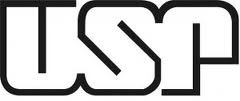|
Início
Agenda |
|
- 22 de junho de 2016
16h30
F-210 -
-
Prof. Gershon Kurizki
-
Weizmann Institute
of Science, Israel
-
-
What
is truly quantum about quantum thermodynamics?
-
-
Synopsis: I will argue that quantum
mechanics endows us with resources that may boost thermodynamic
performance: heat-machine power, cooling speed or work, but the
basic thermodynamic bounds are still adhered to.
-
-
The debated rapport between thermodynamics and
quantum mechanics will be addressed in the framework of the
theory of periodically driven/controlled quantum thermodynamic
machines. The basic model studied by us is that of a two-level
system (TLS) or a harmonic oscillator, whose energy is
periodically modulated while the system is coupled to two
distinct thermal baths. When the modulation interval is short
compared to the bath memory time, the system–bath correlations
are affected, thereby causing cooling or heating of the TLS,
depending on the interval. This setup constitutes the simplest
(minimal) quantum heat machine (QHM) that may operate as either
an engine or a refrigerator, depending on the modulation/driving
rate. It is used by us to scrutinize basic thermodynamic
principles in the quantum domain:
-
-
(i) Externally driven/modulated
QHMs may attain the Carnot efficiency bound, or even surpass it
when the driving is done by a quantum device (piston) in an
appropriate state.
-
(ii) An extension of this model to
multiple entangled systems shows that the power output can be
boosted by the quantum cooperativity of these systems.
-
(iii) The refrigeration effected by
such QHMs persists as the temperature approaches absolute zero
for certain quantized baths, e.g., magnons, thus challenging
the Third Law (Nernst's unattainability principle).
-
(iv) System–bath correlations allow
more work extraction under ultrafast modulation than currently
expected from the Szilard–Landauer principle.
-
Thus, we may conclude that heat machines in the
quantum domain may benefit from hitherto unexploited
quantum-thermodynamic resources.
-
-


|
|